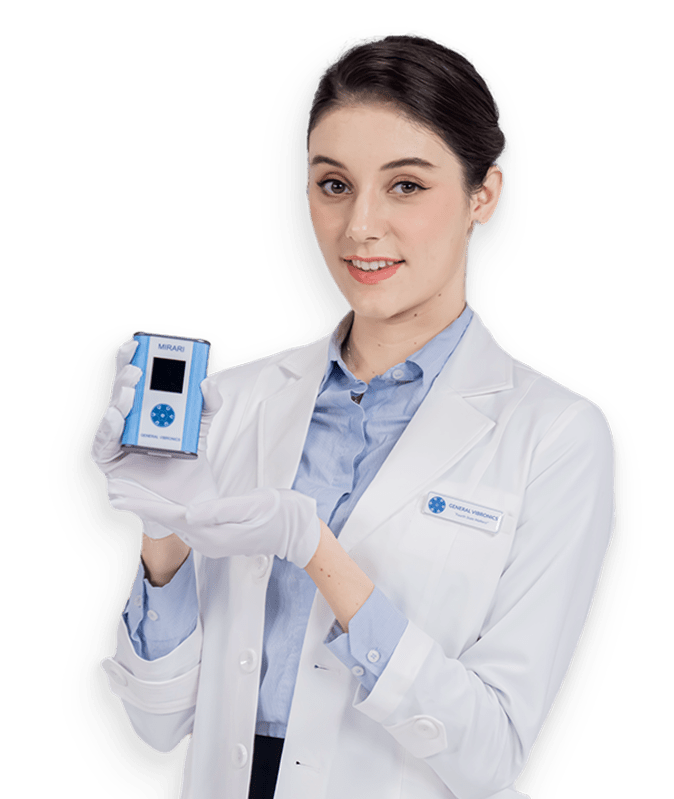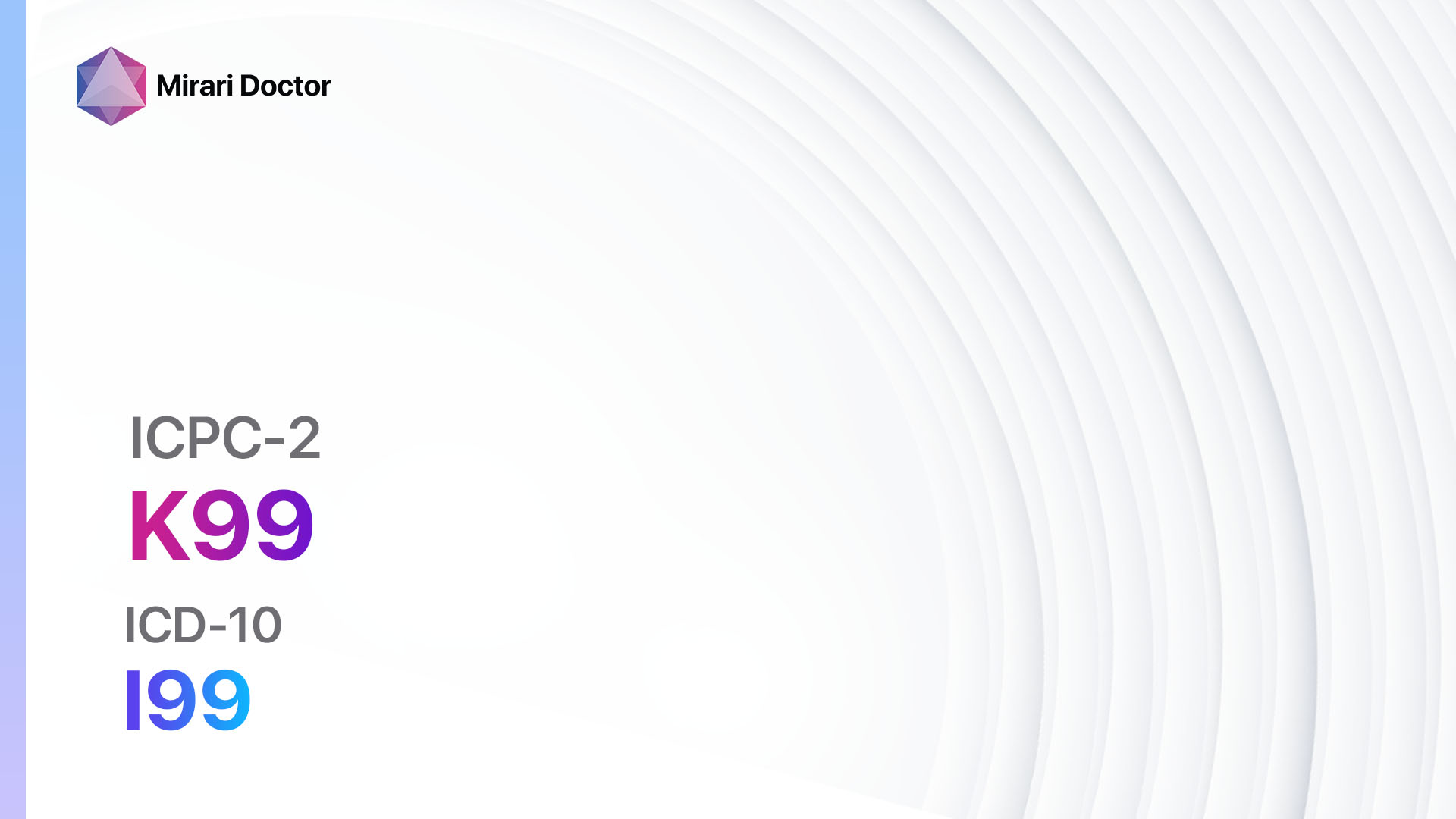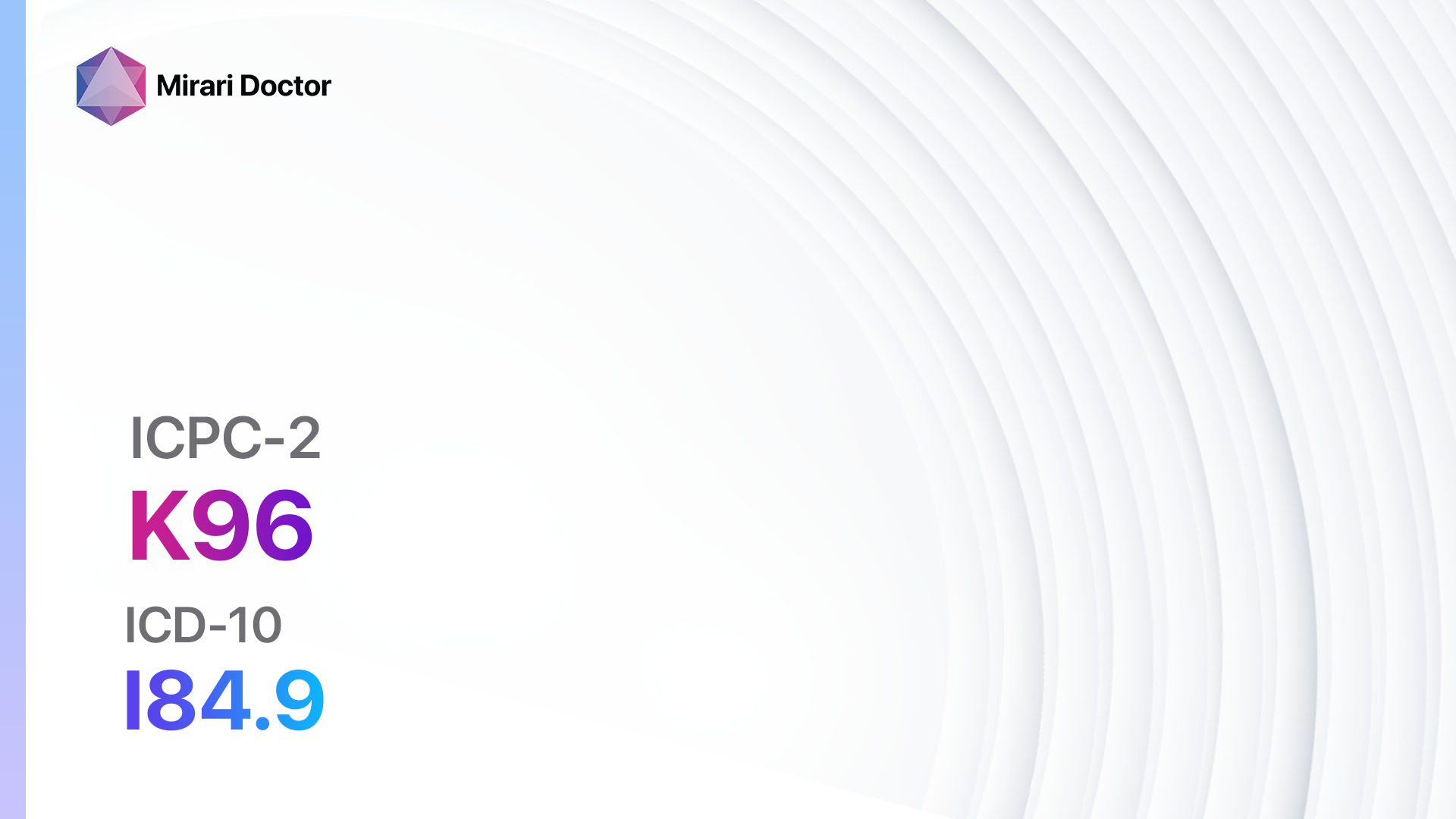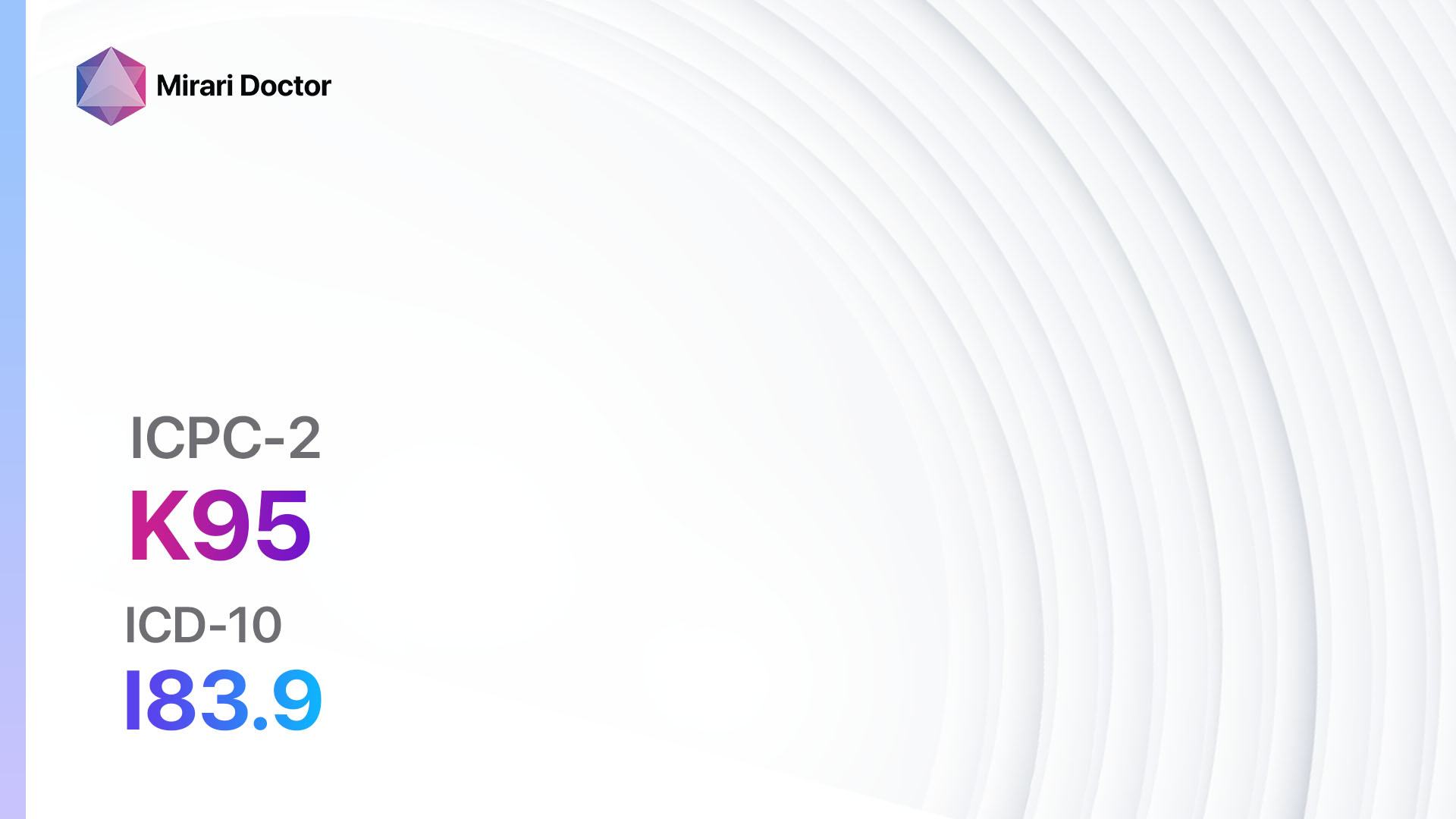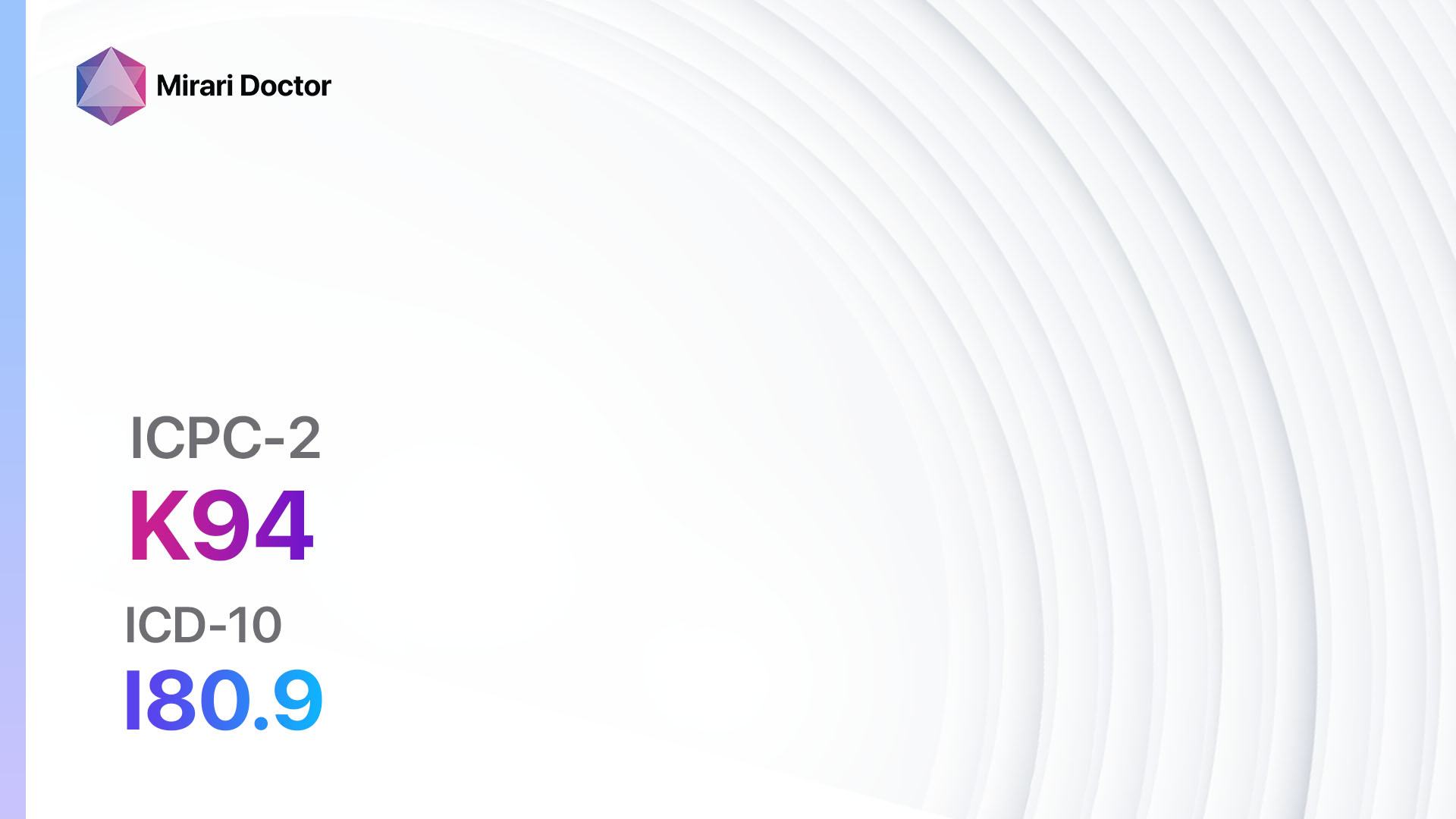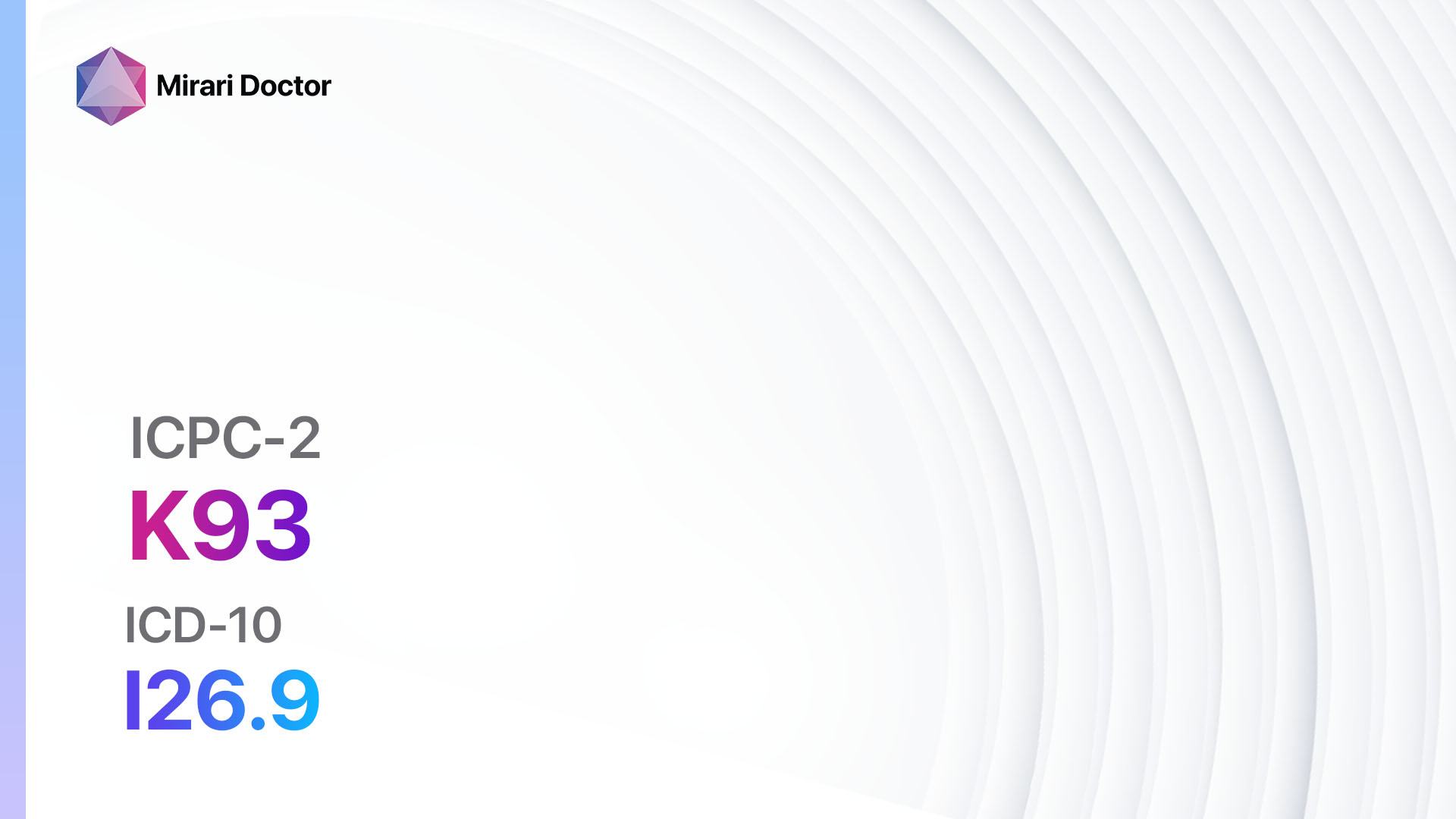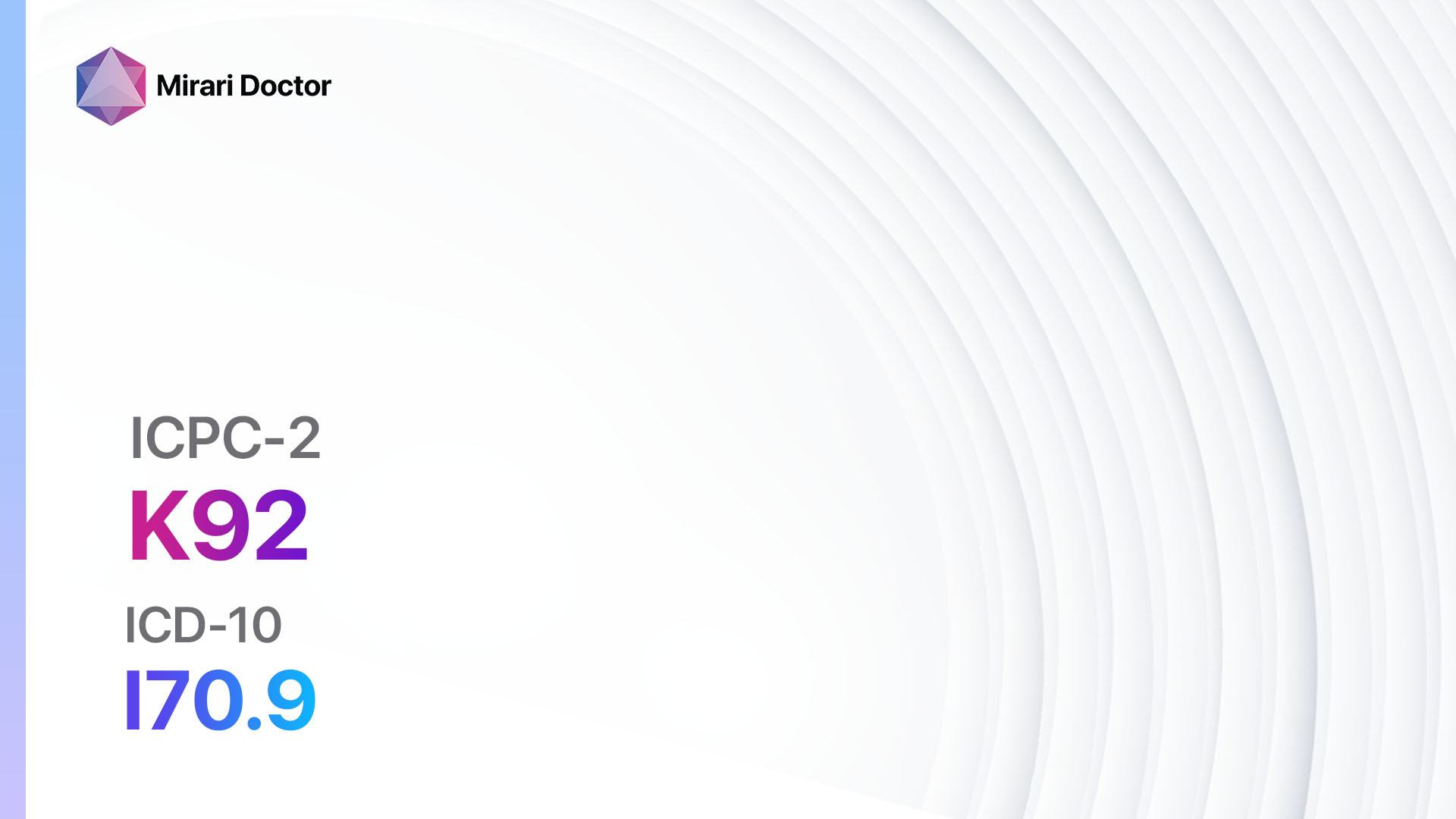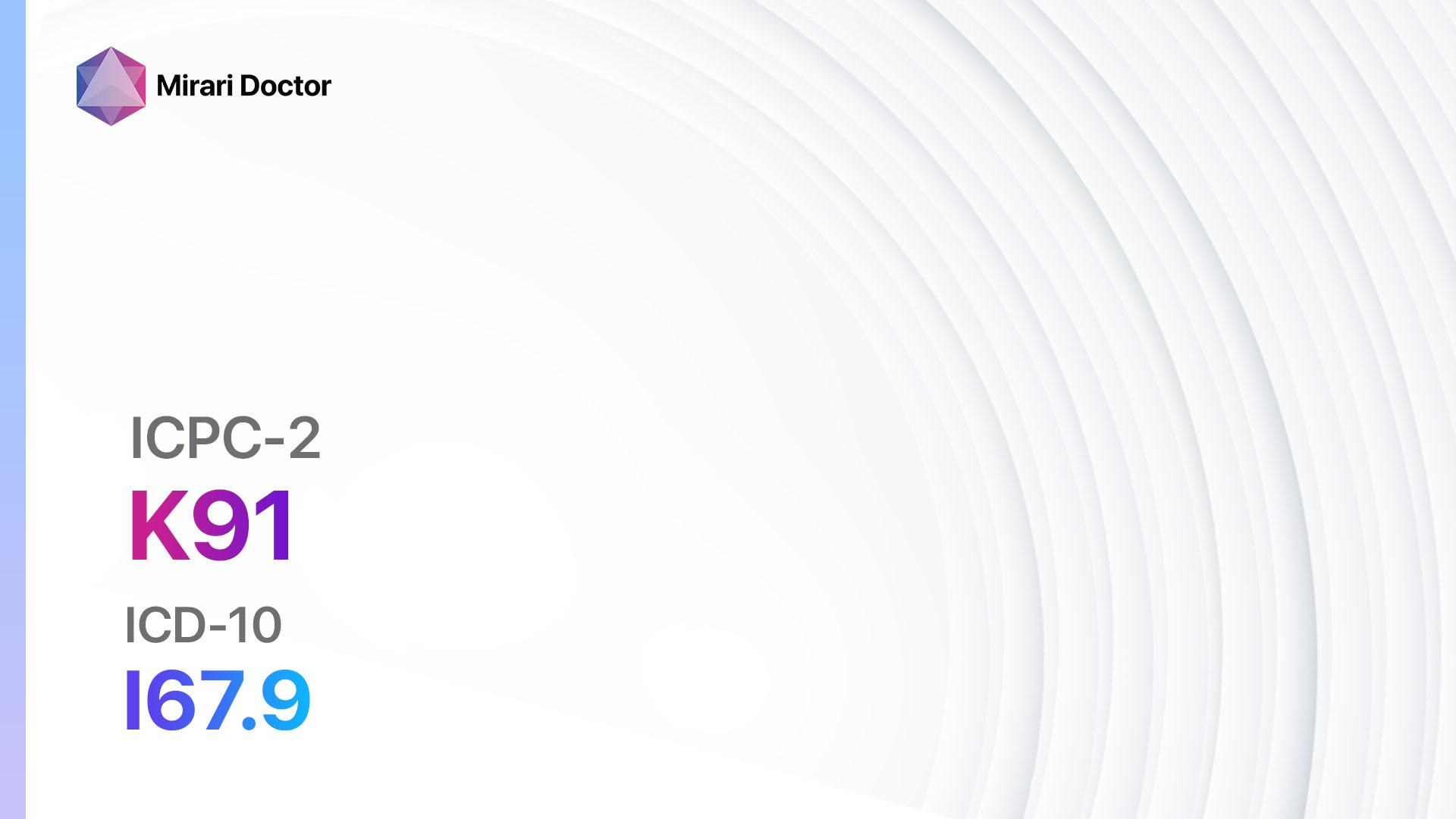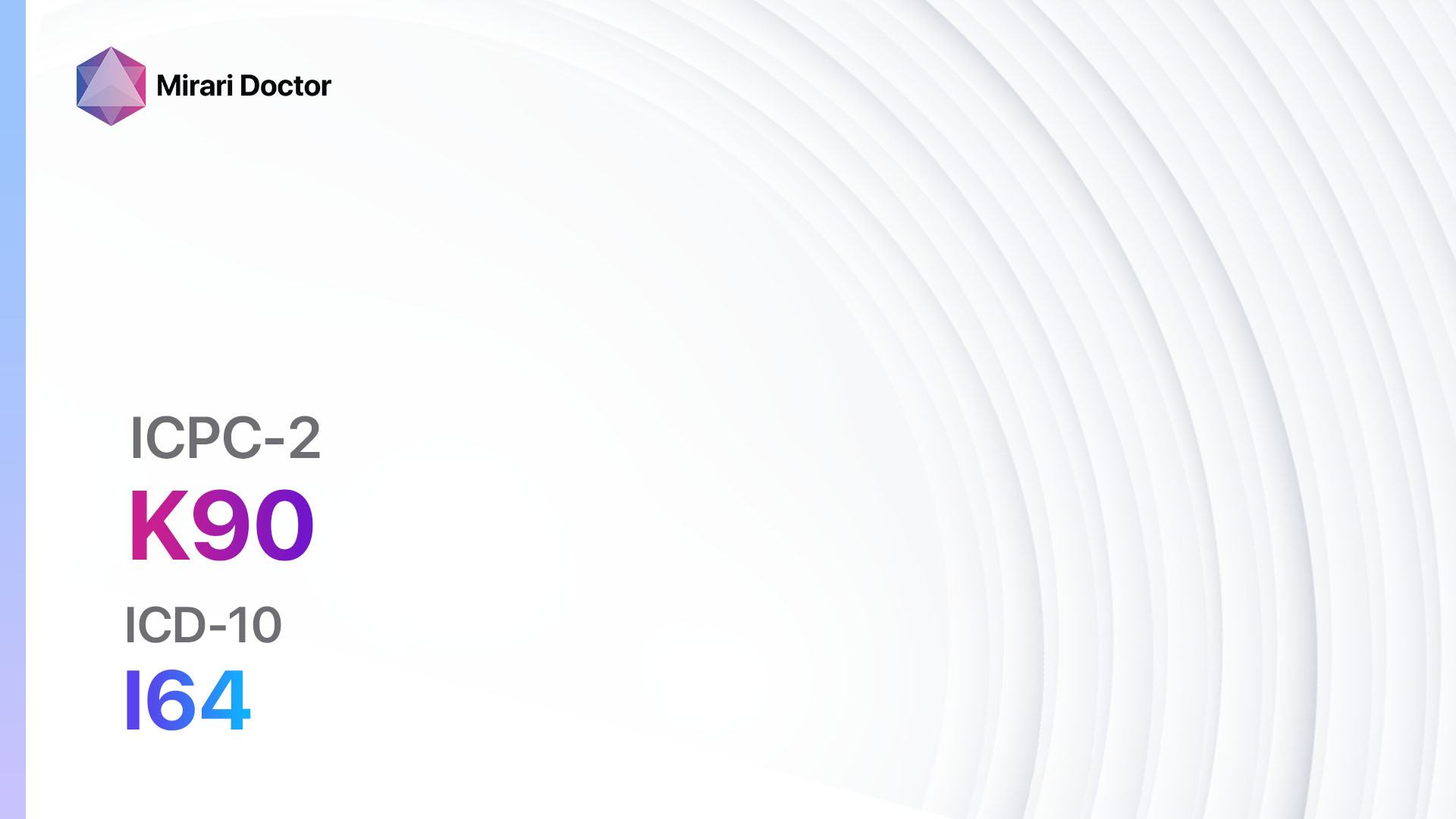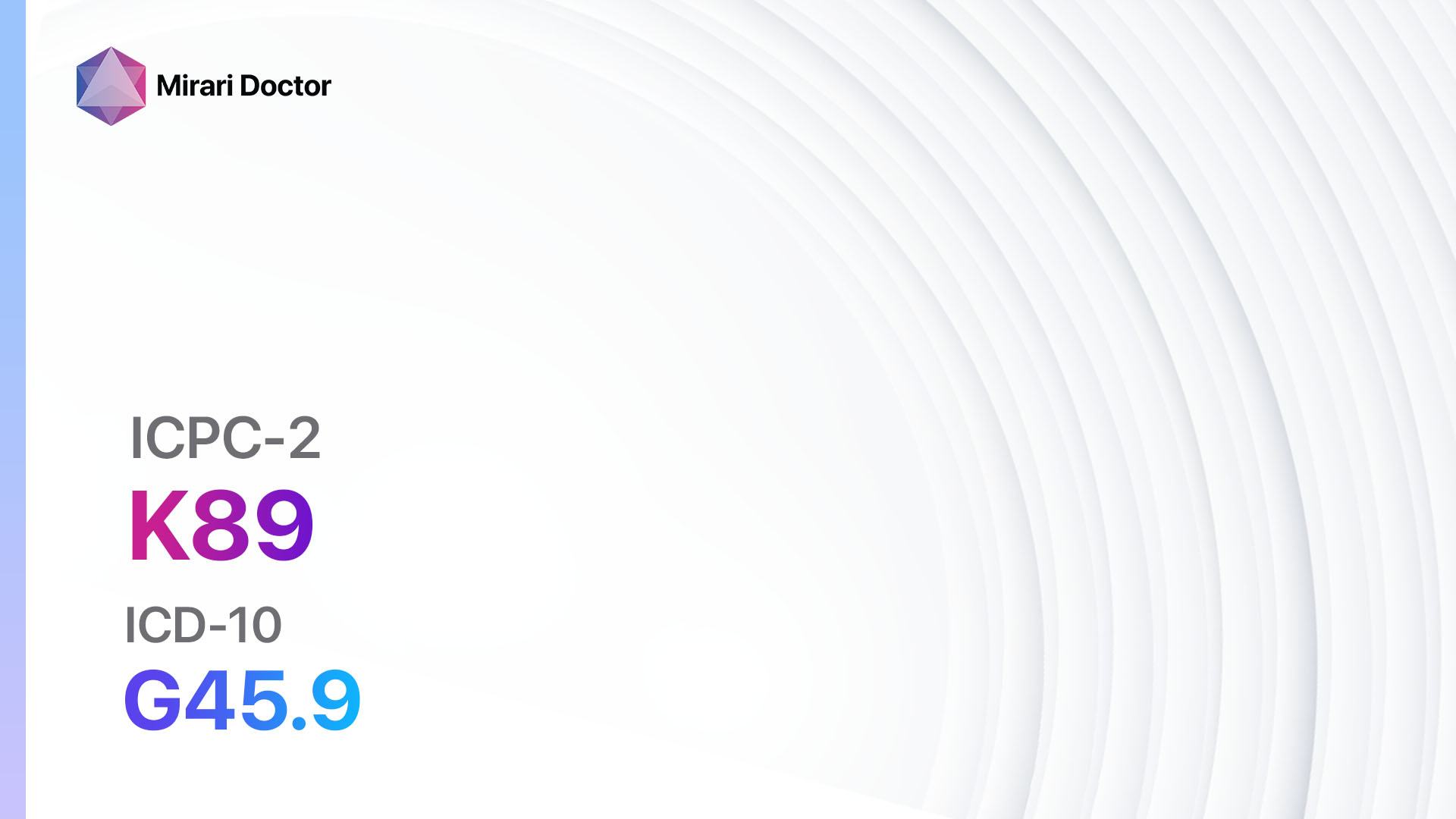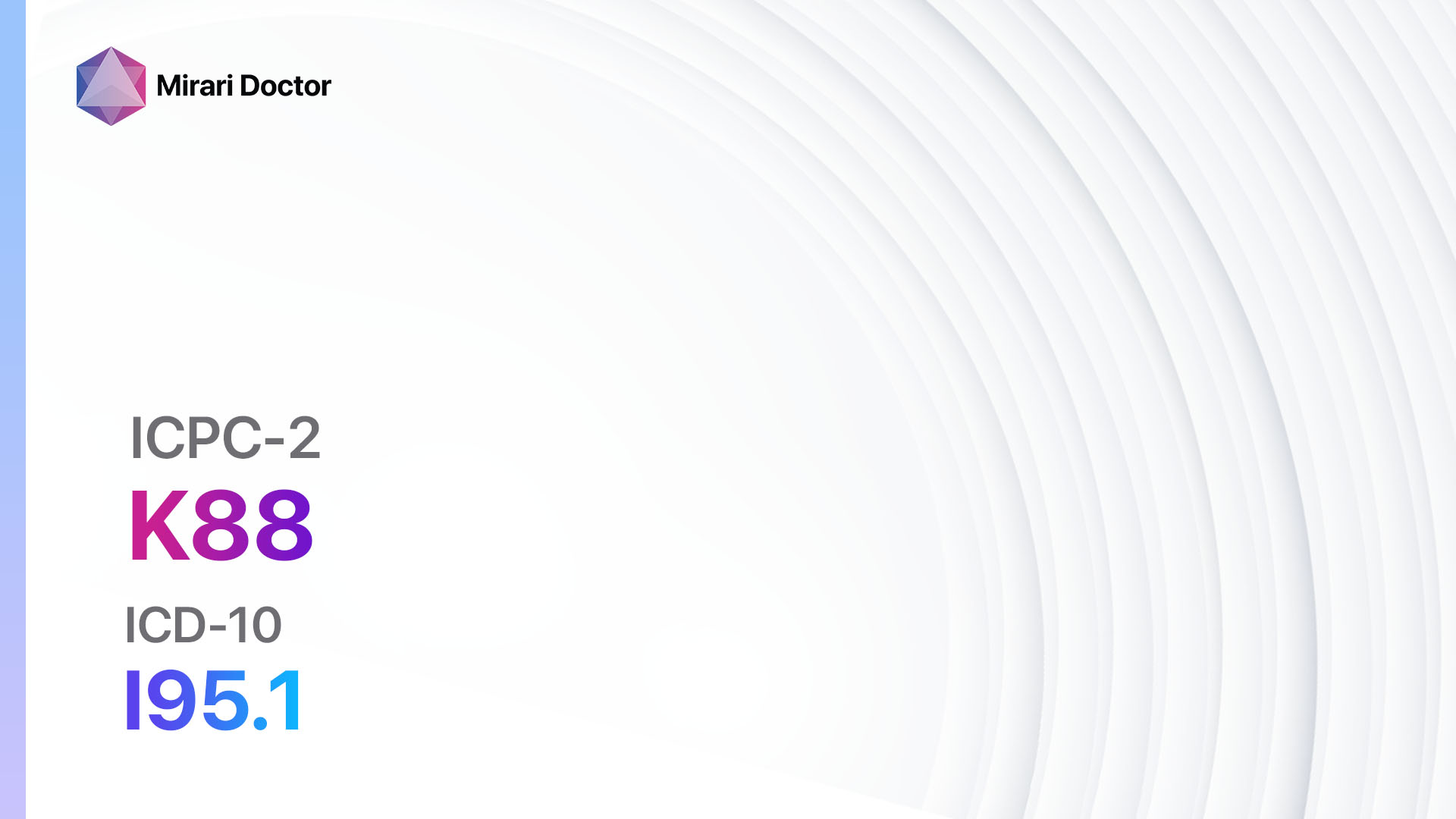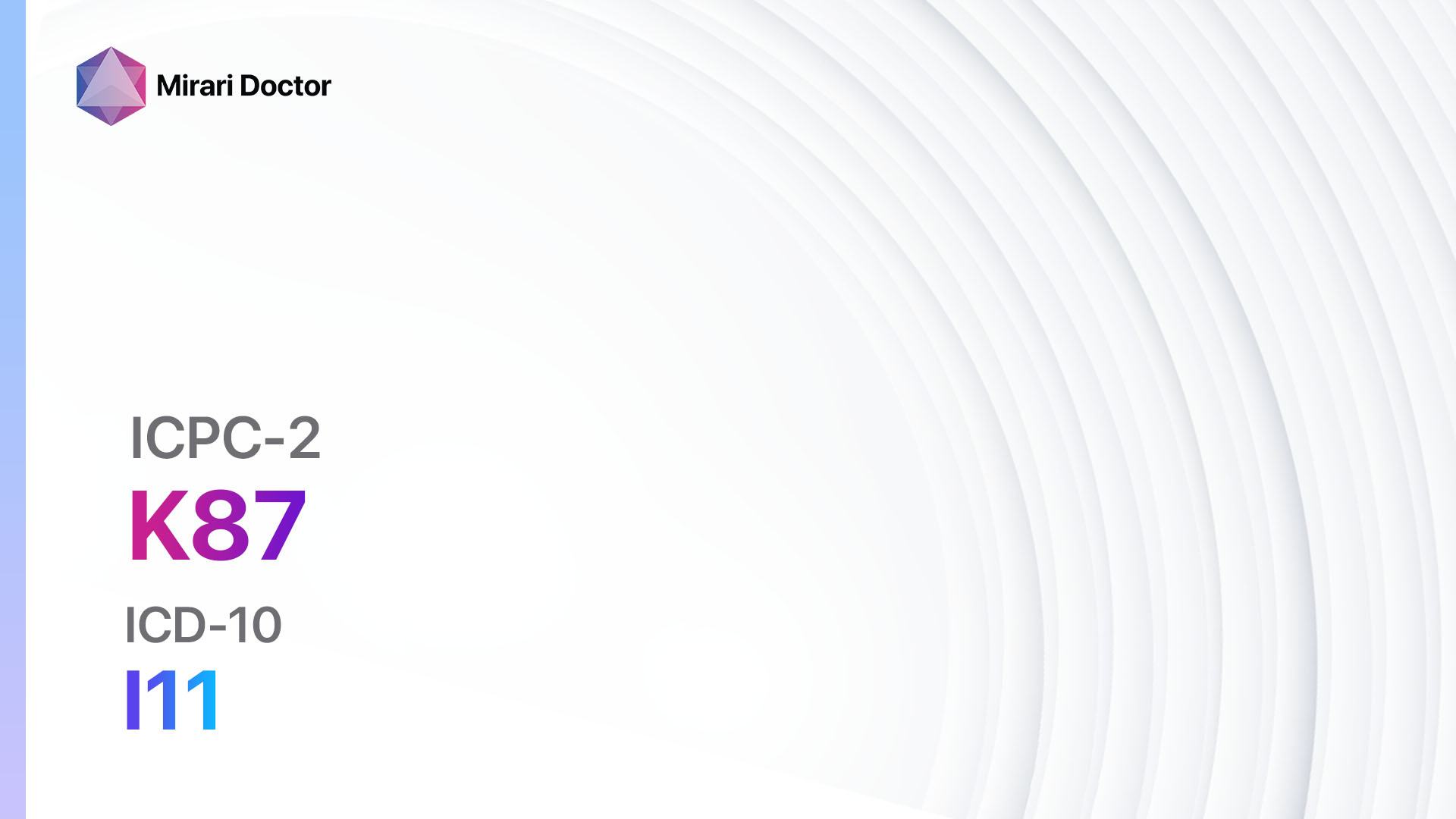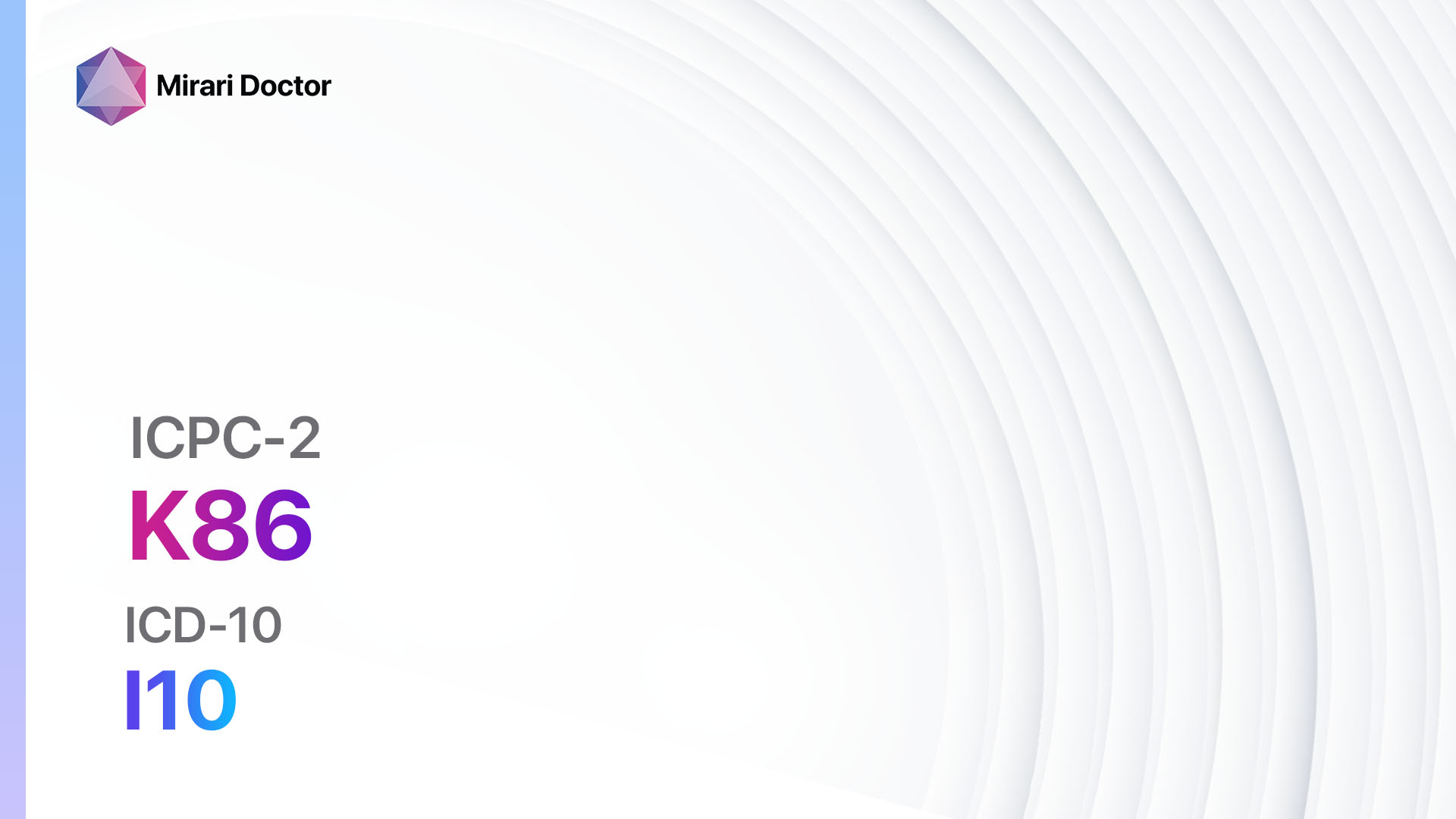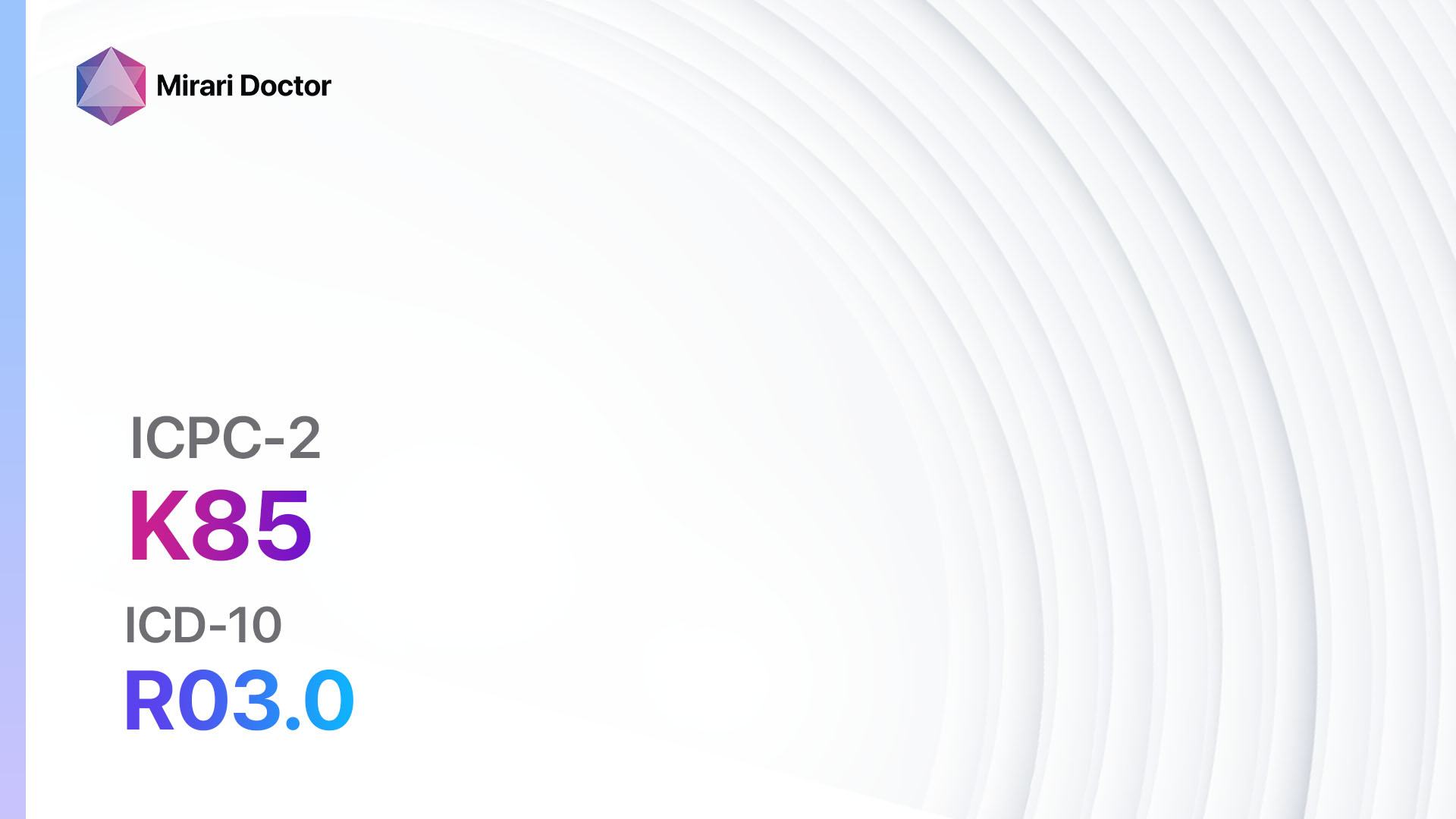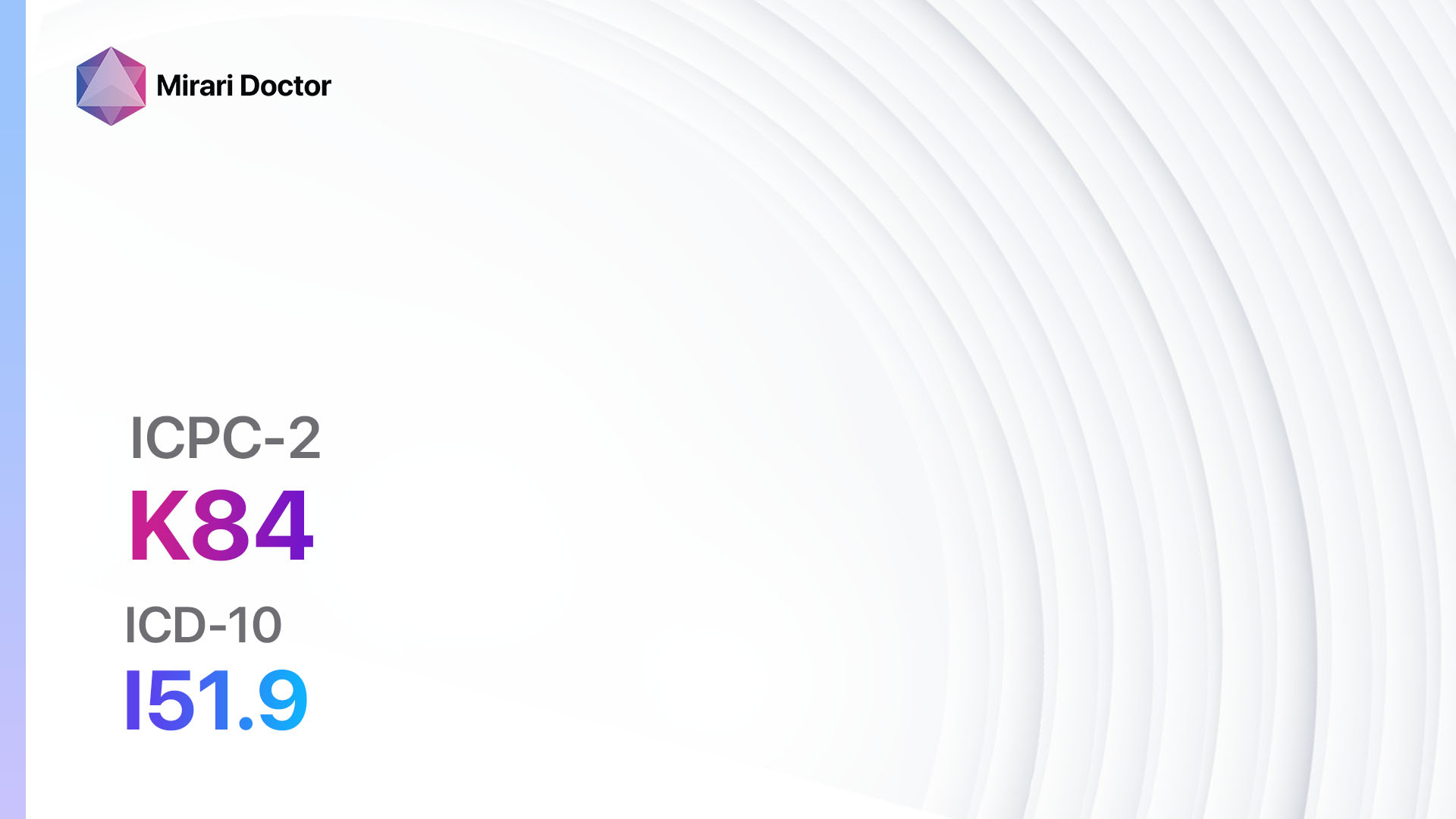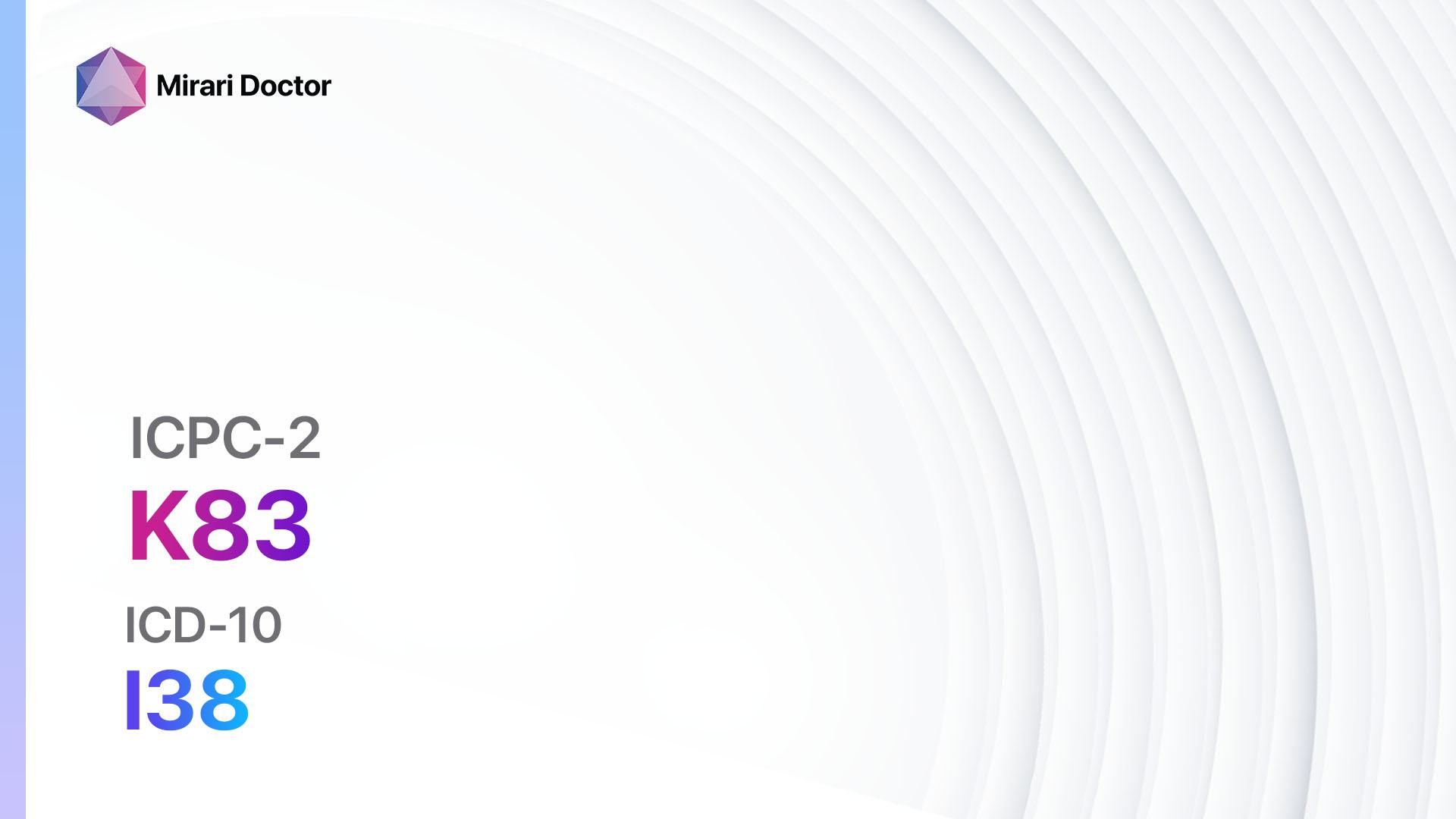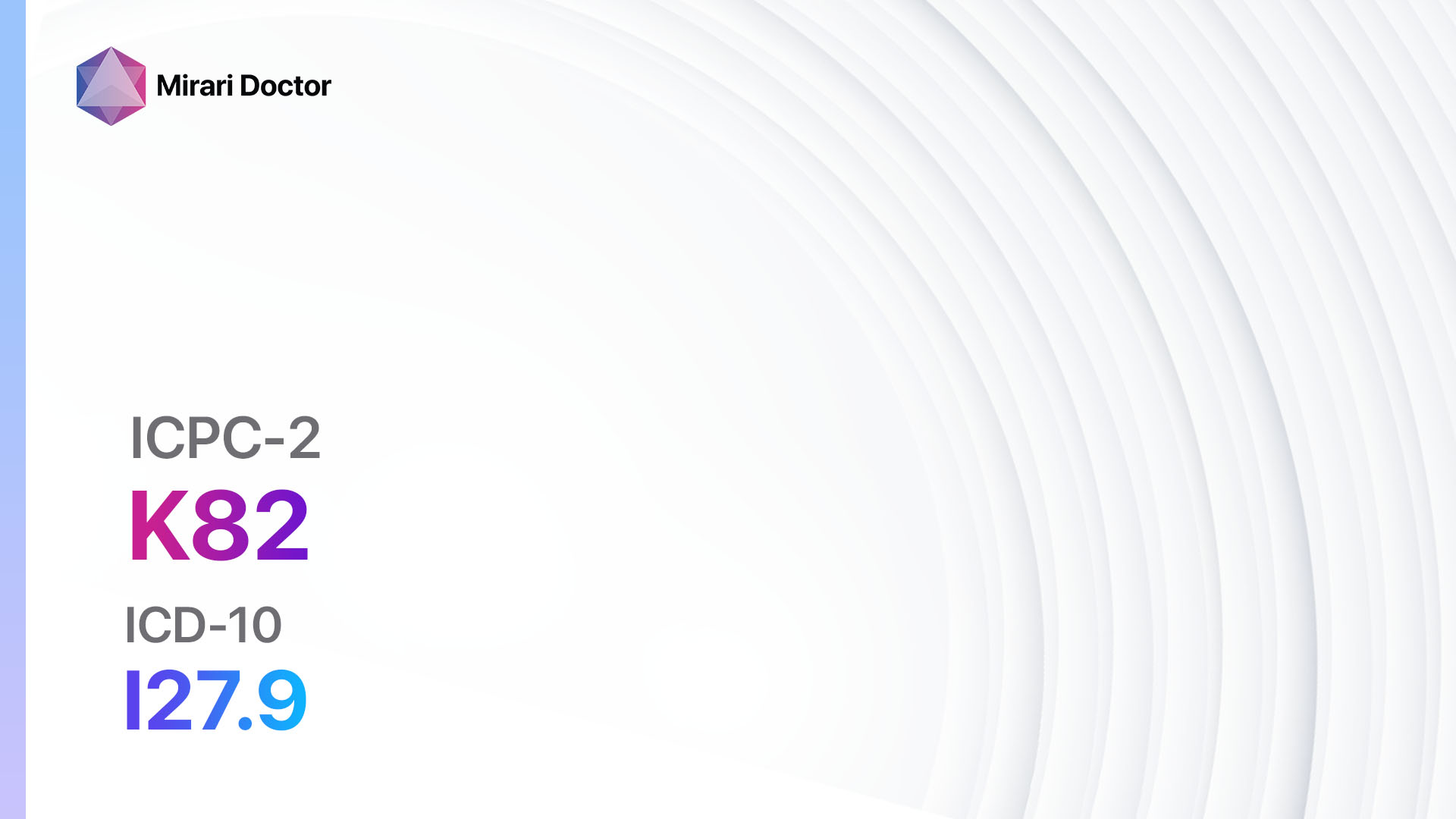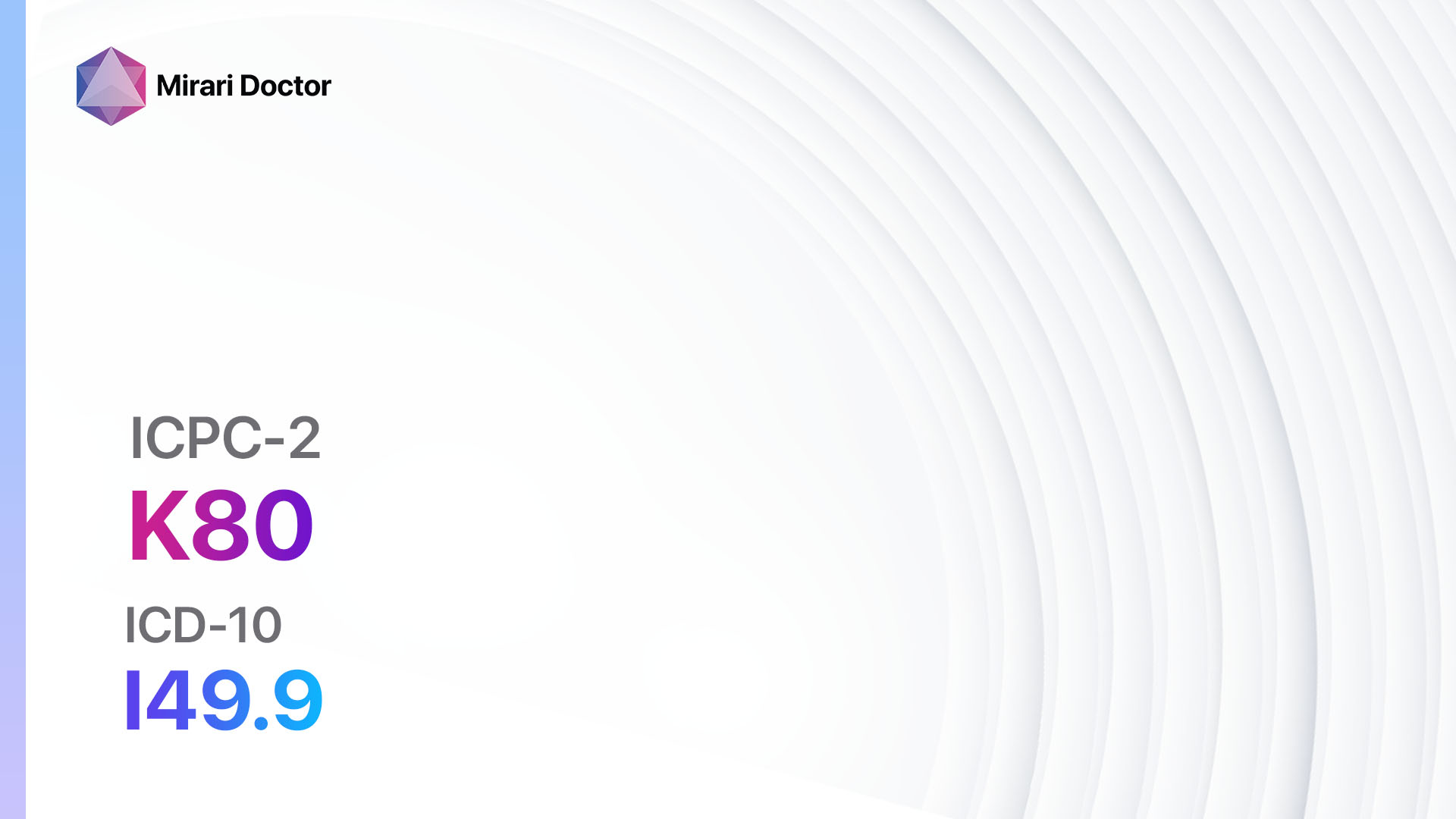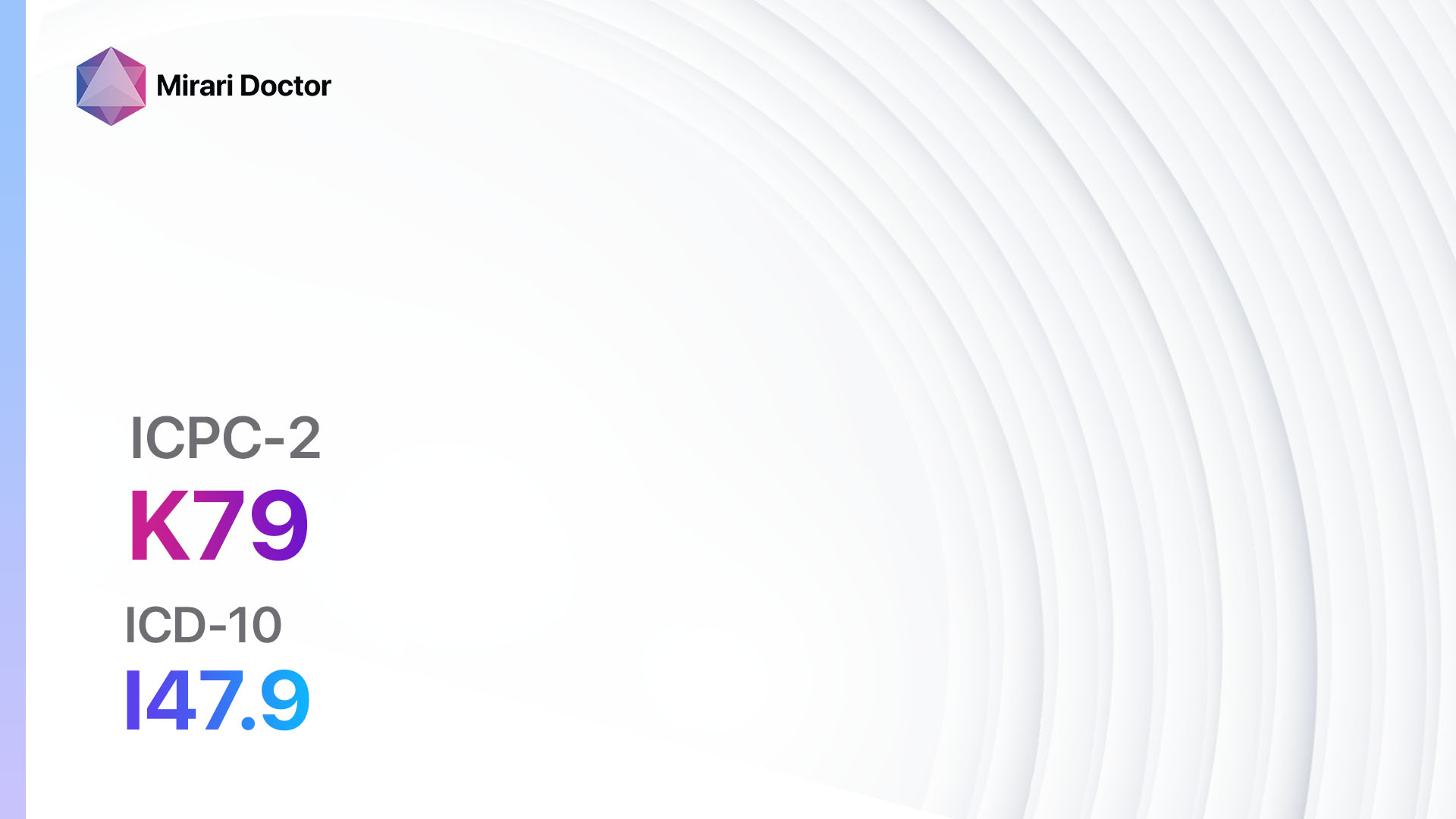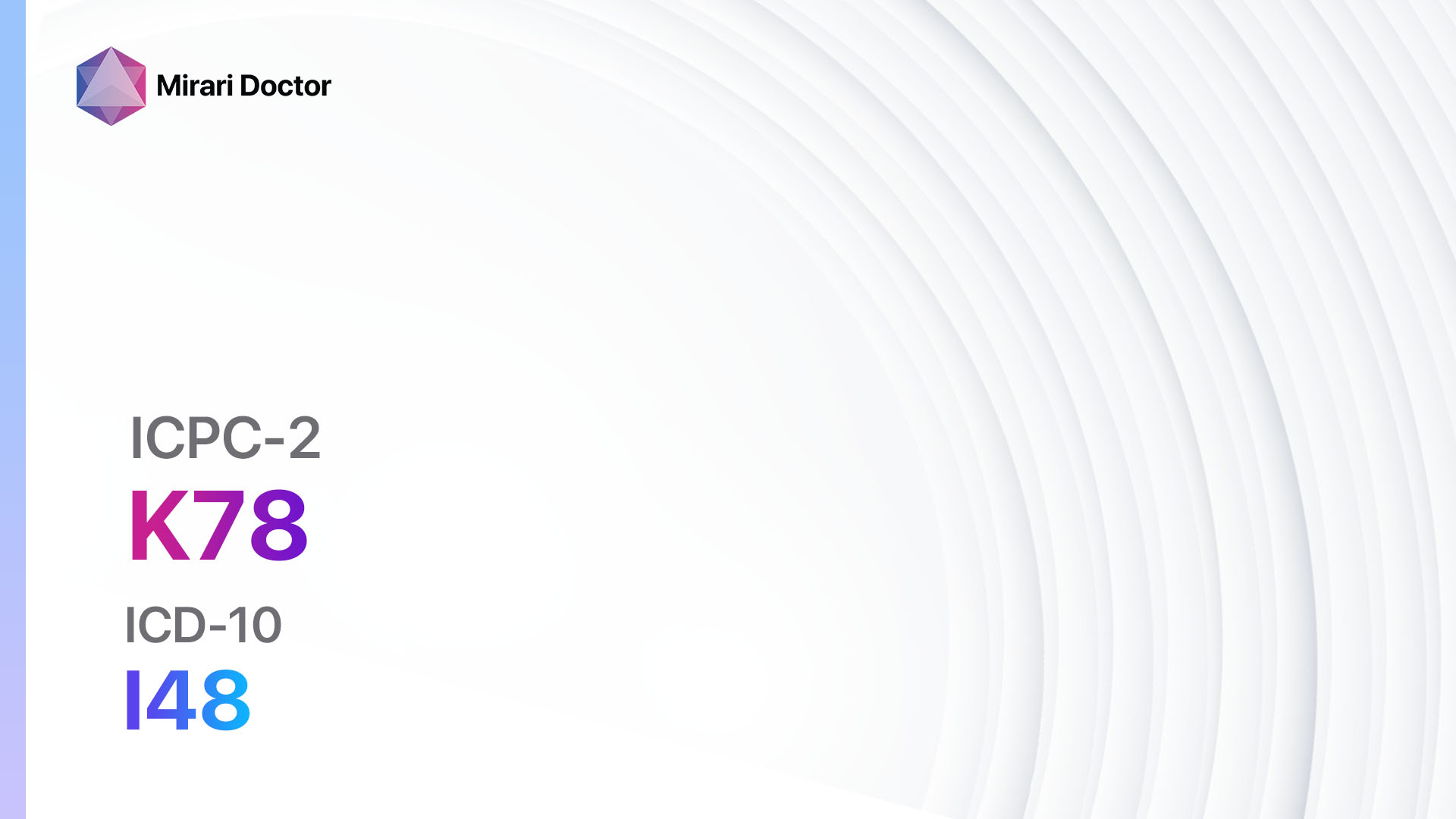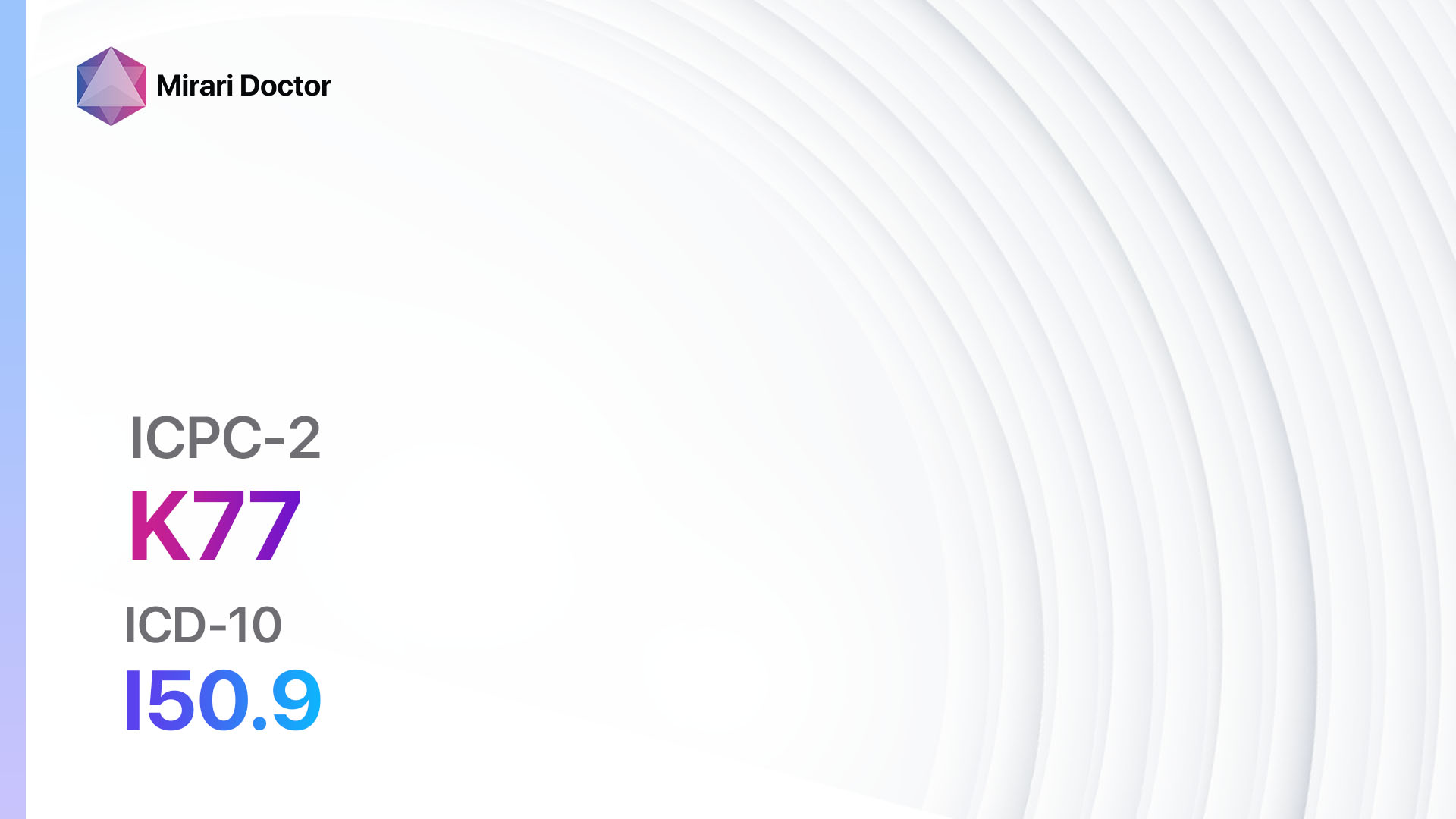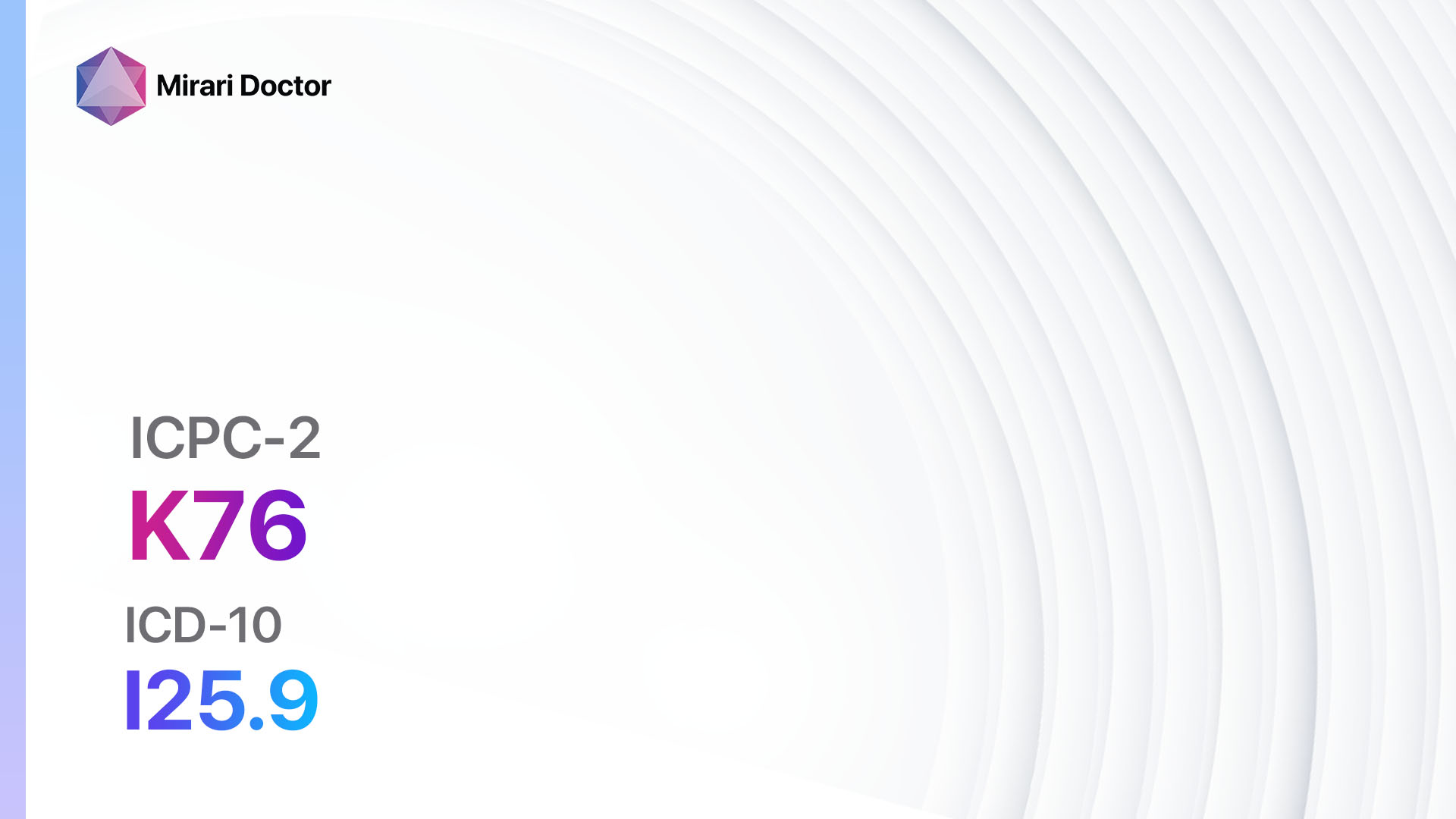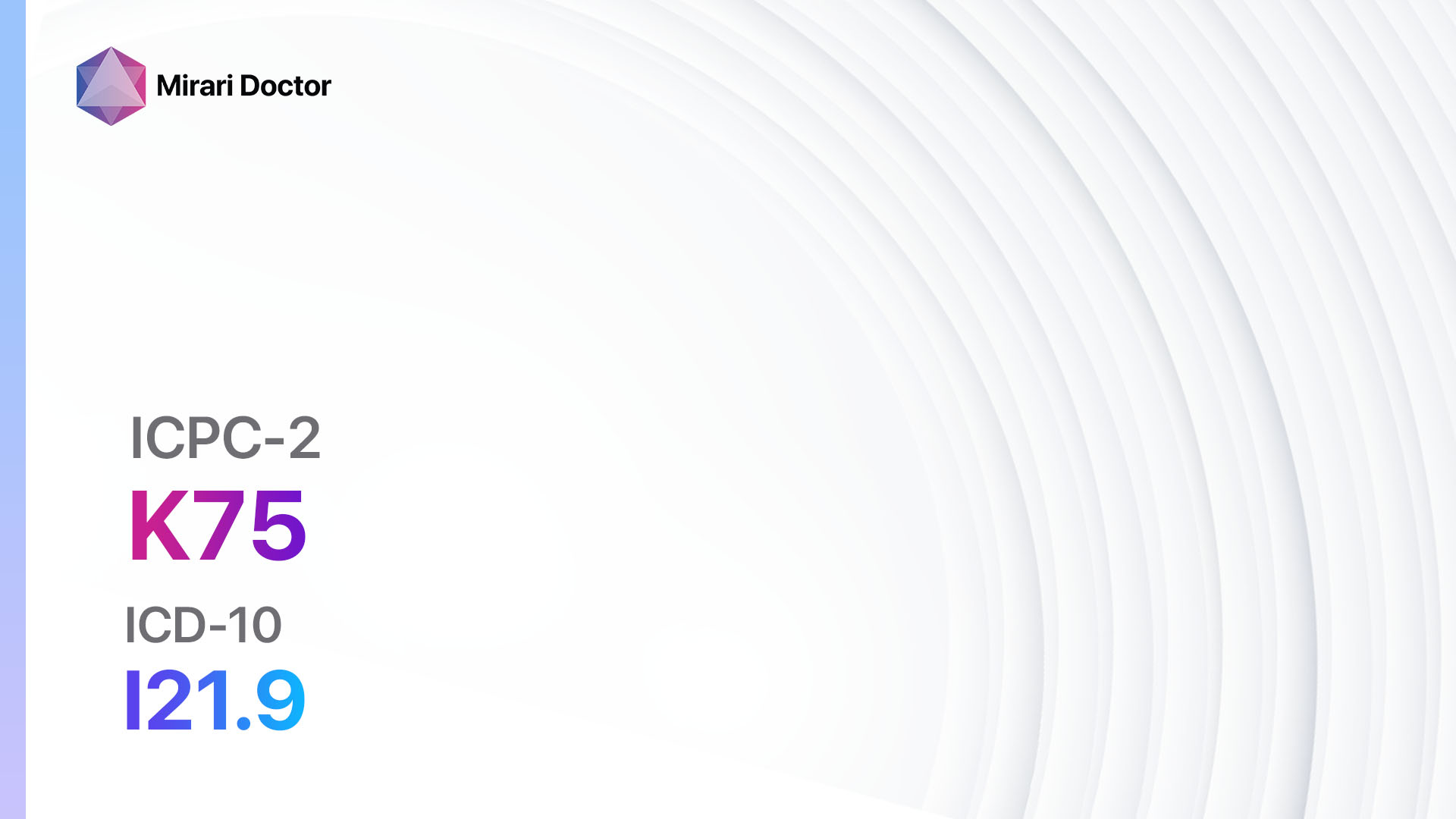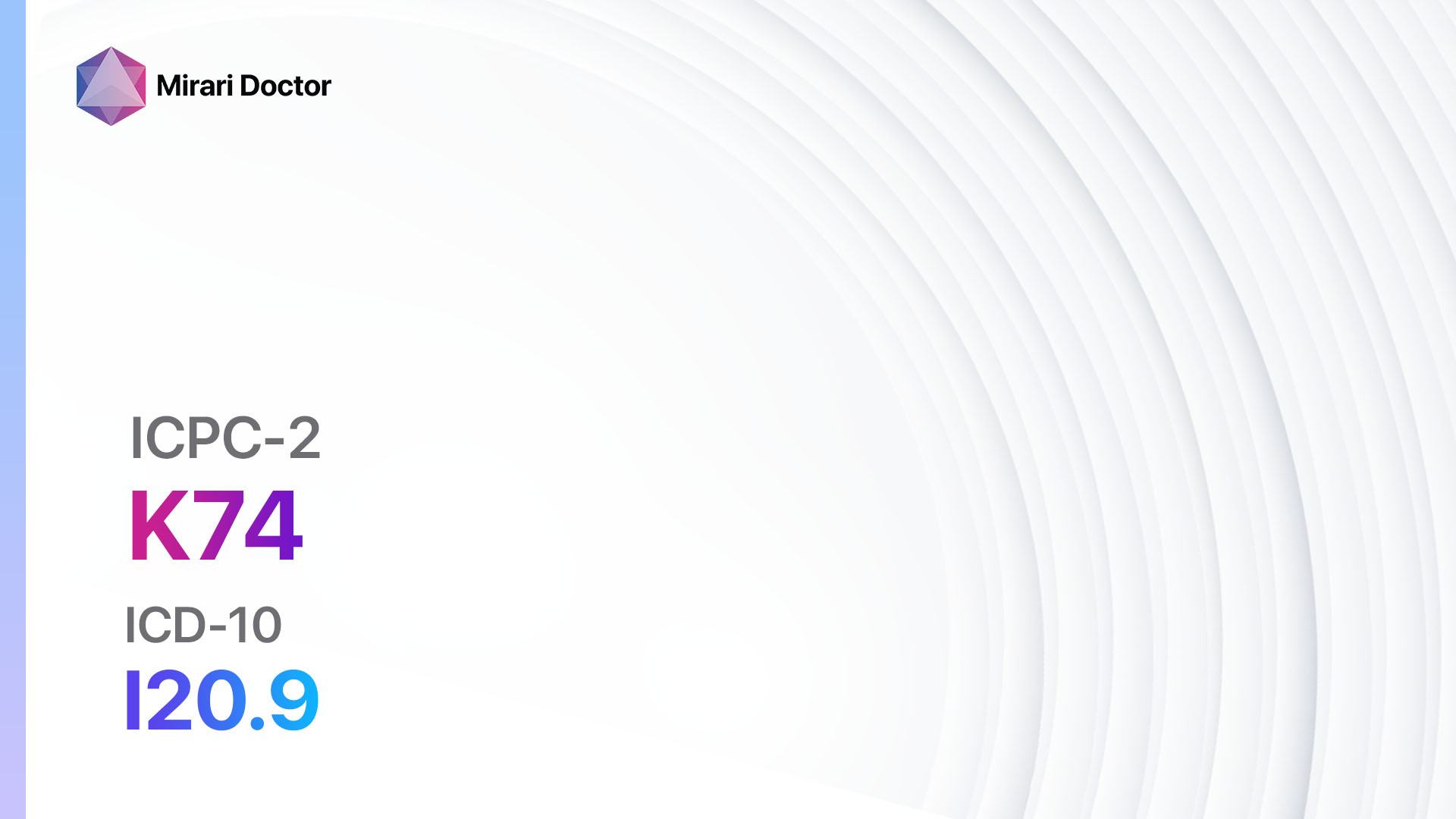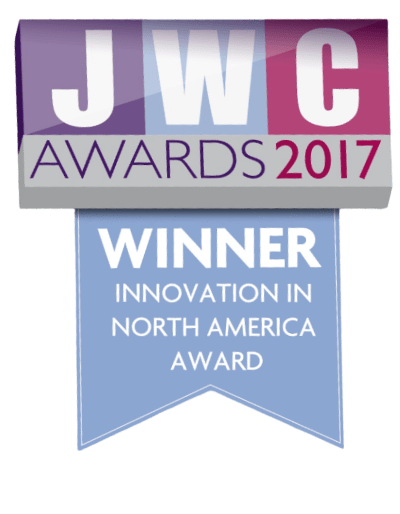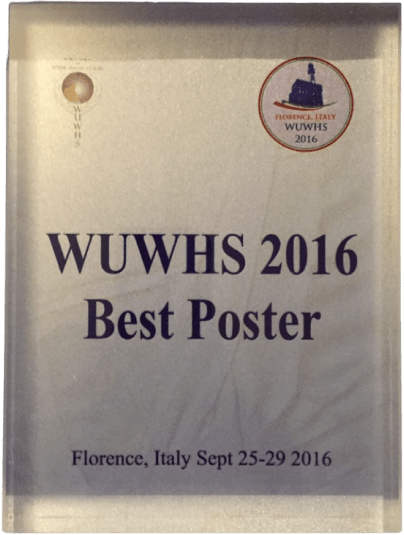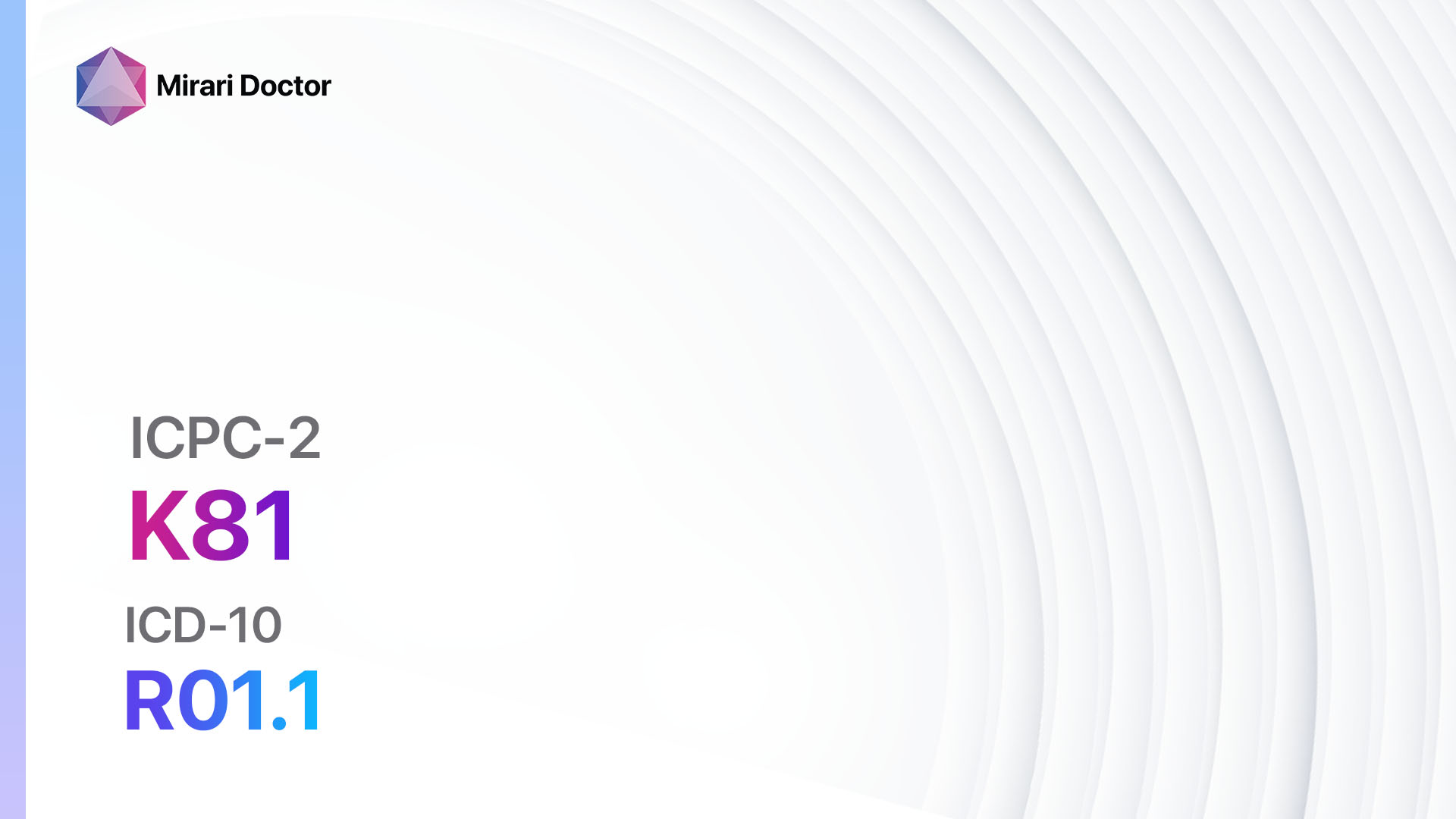
Introduction
Heart/arterial murmur NOS refers to an abnormal sound heard during the heartbeat cycle, indicating turbulent blood flow through the heart or blood vessels[1][2]. This guide aims to provide a comprehensive overview of the diagnosis and management of heart/arterial murmur NOS.
Codes
Symptoms
- Chest pain: Patients may experience chest discomfort or pain, which can vary in intensity and duration[5].
- Shortness of breath: Difficulty breathing or a feeling of breathlessness may occur, especially during physical activity[5].
- Fatigue: Patients may feel tired or exhausted even with minimal exertion[5].
- Dizziness or fainting: Some individuals may experience lightheadedness, dizziness, or fainting spells[5].
- Palpitations: Sensations of rapid or irregular heartbeats be present[5].
Causes
- Valvular abnormalities: Heart murmurs can be caused by problems with the heart valves, such as stenosis (narrowing) or regurgitation (leakage)[6].
- Structural heart defects: Congenital heart defects or acquired conditions, such as hypertrophic cardiomyopathy, can lead to heart murmurs[6].
- Atherosclerosis: The buildup of plaque in the arteries can cause turbulent blood flow and result in murmurs[7].
- High blood pressure: Hypertension can lead to increased stress on the heart and blood vessels, contributing to the development of murmurs[7].
- Other conditions: Certain medical conditions, such as anemia or hyperthyroidism, can also cause heart murmurs[6].
Diagnostic Steps
Medical History
- Gather information about the patient’s symptoms, including the duration, frequency, and severity[8].
- Assess for any risk factors, such as a family history of heart disease, smoking, or obesity[8].
- Inquire about any past medical conditions or surgeries that may be relevant to the development of heart murmurs[8].
Physical Examination
- Perform a thorough physical examination, including auscultation of the heart using a stethoscope[8].
- Identify the location, timing, and characteristics of the murmur, such as intensity, pitch, and radiation[8].
- Assess for any associated physical findings, such as abnormal heart sounds or signs of heart failure[8].
Laboratory Tests
- Complete blood count (CBC): Evaluate for anemia or other blood disorders that may contribute to the development of murmurs[9].
- Lipid profile: Assess lipid levels to determine if atherosclerosis is a contributing factor[9].
- Thyroid function tests: Check thyroid hormone levels to rule out hyperthyroidism as a cause of murmurs[9].
- Additional tests may be ordered based on the patient’s specific presentation and suspected underlying conditions[9].
Diagnostic Imaging
- Echocardiography: This non-invasive test uses sound waves to create images of the heart and assess its structure and function[10].
- Chest X-ray: Evaluate the size and shape of the heart, as well as the presence of any abnormalities in the lungs or surrounding structures[10].
- Electrocardiogram (ECG): Record the electrical activity of the heart to identify any rhythm abnormalities or signs of ischemia[10].
- Additional imaging modalities, such as CT scans or MRIs, may be used in specific cases to further evaluate the heart and blood vessels[10].
Other Tests
- Exercise stress test: Monitor the patient’s heart rate, blood pressure, and ECG while they exercise to assess for exercise-induced murmurs or other abnormalities.
- Cardiac catheterization: Invasive procedure involving the insertion of a catheter into the heart to measure pressures and obtain angiographic images.
- Genetic testing: Consider genetic testing for patients with suspected congenital heart defects or hereditary conditions.
Follow-up and Patient Education
- Schedule regular follow-up appointments to monitor the patient’s symptoms, response to treatment, and overall cardiovascular health.
- Educate the patient about the importance of lifestyle modifications, medication adherence, and regular medical check-ups to manage their condition effectively.
Possible Interventions
Traditional Interventions
Medications:
Top 5 drugs for Heart/arterial murmur NOS:
- Beta-blockers (e.g., Metoprolol, Atenolol):
- Cost: Generic versions are typically <$30/month.
- Contraindications: Severe bradycardia, uncontrolled heart failure.
- Side effects: Fatigue, dizziness, bradycardia.
- Severe side effects: Bronchospasm, heart block.
- Drug interactions: Calcium channel blockers, insulin.
- Warning: Should not be abruptly stopped.
- Angiotensin-converting enzyme (ACE) inhibitors (e.g., Ramipril, Lisinopril):
- Cost: Generics can be $10-$50/month.
- Contraindications: History of angioedema with ACE inhibitors, renal artery stenosis.
- Side effects: Cough, elevated blood urea nitrogen.
- Severe side effects: Angioedema, hyperkalemia.
- Drug interactions: Potassium supplements, NSAIDs.
- Warning: Monitoring of renal function and potassium is required.
- Diuretics (e.g., Furosemide, Hydrochlorothiazide):
- Cost: Generic versions are typically <$10/month.
- Contraindications: Severe electrolyte imbalance, anuria.
- Side effects: Frequent urination, electrolyte abnormalities.
- Severe side effects: Dehydration, hypotension.
- Drug interactions: Nonsteroidal anti-inflammatory drugs (NSAIDs), lithium.
- Warning: Monitor electrolyte levels regularly.
- Antiplatelet agents (e.g., Clopidogrel, Aspirin):
- Cost: Aspirin is inexpensive (<$10/month). Clopidogrel is $10-$100/month for generic.
- Contraindications: Active bleeding, peptic ulcer disease.
- Side effects: Upset stomach, bleeding.
- Severe side effects: Severe bleeding, allergic reactions.
- Drug interactions: NSAIDs, other blood thinners.
- Warning: Risk of bleeding.
- Calcium channel blockers (e.g., Amlodipine, Diltiazem):
- Cost: Generic versions can be $10-$50/month.
- Contraindications: Severe hypotension, heart block.
- Side effects: Edema, dizziness, flushing.
- Severe side effects: Bradycardia, heart failure.
- Drug interactions: Beta-blockers, grapefruit juice.
- Warning: Monitor blood pressure and heart rate regularly.
Alternative Drugs:
- Nitrates (e.g., Nitroglycerin): Used for the relief of angina symptoms.
- Digitalis (e.g., Digoxin): May be considered for patients with heart failure and atrial fibrillation.
- Antiarrhythmic agents (e.g., Amiodarone, Flecainide): Used to manage arrhythmias associated with heart murmurs.
- Anticoagulants (e.g., Warfarin, Apixaban): Prescribed for patients at high risk of thromboembolic events.
Surgical Procedures:
- Valve repair or replacement: Surgical intervention to repair or replace damaged heart valves.
- Coronary artery bypass grafting (CABG): Redirects blood flow around blocked or narrowed coronary arteries.
- Angioplasty and stent placement: A catheter is used to place a stent to open up narrowed arteries.
- Cardiac ablation: Destroys abnormal heart tissue responsible for arrhythmias.
- Pacemaker or implantable cardioverter-defibrillator (ICD) placement: Devices used to regulate heart rhythm or treat life-threatening arrhythmias.
Alternative Interventions
- Acupuncture: May help improve blood flow and reduce pain. Cost: $60-$120 per session.
- Chelation therapy: Controversial treatment involving the administration of chelating agents to remove heavy metals from the body. Cost: $75-$150 per session.
- Hyperbaric oxygen therapy: Involves breathing pure oxygen in a pressurized chamber to increase oxygen delivery to tissues. Cost: $200-$300 per session.
- Herbal supplements: Some herbs, such as garlic and ginkgo biloba, may have potential benefits for improving circulation. Cost: Varies depending on the specific supplement.
Lifestyle Interventions
- Regular exercise: Engaging in aerobic activities, such as walking or swimming, can improve cardiovascular health. Cost: Varies (e.g., gym membership, equipment).
- Healthy diet: Emphasize a diet rich in fruits, vegetables, whole grains, and lean proteins while limiting saturated and trans fats, cholesterol, and sodium. Cost: Varies depending on food choices.
- Smoking cessation: Quitting smoking can significantly reduce the risk of cardiovascular disease. Cost: Varies (e.g., nicotine replacement therapy, counseling).
- Stress management: Techniques such as meditation, yoga, or counseling can help manage stress levels. Cost: Varies (e.g., classes, therapy sessions).
- Weight management: Achieving and maintaining a healthy weight can improve cardiovascular health. Cost: Varies (e.g., diet programs, gym membership).
It is important to note that the cost ranges provided are approximate and may vary depending on the location and availability of the interventions.
Mirari Cold Plasma Alternative Intervention
Understanding Mirari Cold Plasma
- Safe and Non-Invasive Treatment: Mirari Cold Plasma is a safe and non-invasive treatment option for various skin conditions. It does not require incisions, minimizing the risk of scarring, bleeding, or tissue damage.
- Efficient Extraction of Foreign Bodies: Mirari Cold Plasma facilitates the removal of foreign bodies from the skin by degrading and dissociating organic matter, allowing easier access and extraction.
- Pain Reduction and Comfort: Mirari Cold Plasma has a local analgesic effect, providing pain relief during the treatment, making it more comfortable for the patient.
- Reduced Risk of Infection: Mirari Cold Plasma has antimicrobial properties, effectively killing bacteria and reducing the risk of infection.
- Accelerated Healing and Minimal Scarring: Mirari Cold Plasma stimulates wound healing and tissue regeneration, reducing healing time and minimizing the formation of scars.
Mirari Cold Plasma Prescription
Video instructions for using Mirari Cold Plasma Device – K81 Heart/arterial murmur NOS (ICD-10:R01.1)
| Mild | Moderate | Severe |
| Mode setting: 1 (Infection) Location: 5 (Lungs) Morning: 15 minutes, Evening: 15 minutes |
Mode setting: 1 (Infection) Location: 5 (Lungs) Morning: 30 minutes, Lunch: 30 minutes, Evening: 30 minutes |
Mode setting: 1 (Infection) Location: 5 (Lungs) Morning: 30 minutes, Lunch: 30 minutes, Evening: 30 minutes |
| Mode setting: 2 (Wound Healing) Location: 5 (Lungs) Morning: 15 minutes, Evening: 15 minutes |
Mode setting: 2 (Wound Healing) Location: 5 (Lungs) Morning: 30 minutes, Lunch: 30 minutes, Evening: 30 minutes |
Mode setting: 2 (Wound Healing) Location: 5 (Lungs) Morning: 30 minutes, Lunch: 30 minutes, Evening: 30 minutes |
| Mode setting: 7 (Immunotherapy) Location: 1 (Sacrum) Morning: 15 minutes, Evening: 15 minutes |
Mode setting: 7 (Immunotherapy) Location: 1 (Sacrum) Morning: 30 minutes, Lunch: 30 minutes, Evening: 30 minutes |
Mode setting: 7 (Immunotherapy) Location: 1 (Sacrum) Morning: 30 minutes, Lunch: 30 minutes, Evening: 30 minutes |
| Mode setting: 7 (Immunotherapy) Location: 4 (Heart, Bile & Pancreas) Morning: 15 minutes, Evening: 15 minutes |
Mode setting: 7 (Immunotherapy) Location: 4 (Heart, Bile & Pancreas) Morning: 30 minutes, Lunch: 30 minutes, Evening: 30 minutes |
Mode setting:7 (Immunotherapy) Location: 4 (Heart, Bile & Pancreas) Morning: 30 minutes, Lunch: 30 minutes, Evening: 30 minutes |
| Total Morning: 60 minutes approx. $10 USD, Evening: 60 minutes approx. $10 USD |
Total Morning: 120 minutes approx. $20 USD, Lunch: 120 minutes approx. $20 USD, Evening: 120 minutes approx. $20 USD, |
Total Morning: 120 minutes approx. $20 USD, Lunch: 120 minutes approx. $20 USD, Evening: 120 minutes approx. $20 USD, |
| Usual treatment for 7-60 days approx. $140 USD – $1200 USD | Usual treatment for 6-8 weeks approx. $2,520 USD – $3,360 USD |
Usual treatment for 3-6 months approx. $5,400 USD – $10,800 USD
|
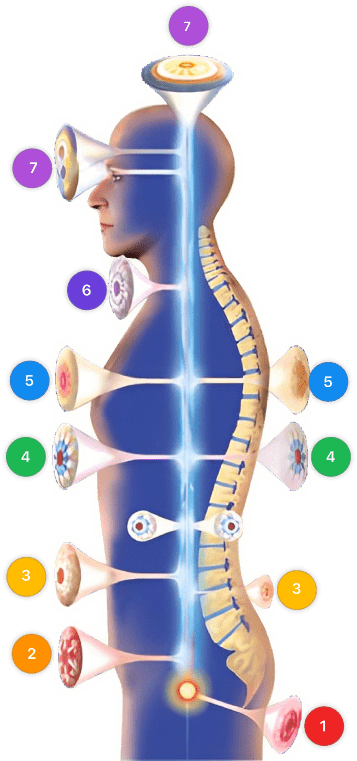 |
|
Use the Mirari Cold Plasma device to treat Heart/arterial murmur NOS effectively.
WARNING: MIRARI COLD PLASMA IS DESIGNED FOR THE HUMAN BODY WITHOUT ANY ARTIFICIAL OR THIRD PARTY PRODUCTS. USE OF OTHER PRODUCTS IN COMBINATION WITH MIRARI COLD PLASMA MAY CAUSE UNPREDICTABLE EFFECTS, HARM OR INJURY. PLEASE CONSULT A MEDICAL PROFESSIONAL BEFORE COMBINING ANY OTHER PRODUCTS WITH USE OF MIRARI.
Step 1: Cleanse the Skin
- Start by cleaning the affected area of the skin with a gentle cleanser or mild soap and water. Gently pat the area dry with a clean towel.
Step 2: Prepare the Mirari Cold Plasma device
- Ensure that the Mirari Cold Plasma device is fully charged or has fresh batteries as per the manufacturer’s instructions. Make sure the device is clean and in good working condition.
- Switch on the Mirari device using the power button or by following the specific instructions provided with the device.
- Some Mirari devices may have adjustable settings for intensity or treatment duration. Follow the manufacturer’s instructions to select the appropriate settings based on your needs and the recommended guidelines.
Step 3: Apply the Device
- Place the Mirari device in direct contact with the affected area of the skin. Gently glide or hold the device over the skin surface, ensuring even coverage of the area experiencing.
- Slowly move the Mirari device in a circular motion or follow a specific pattern as indicated in the user manual. This helps ensure thorough treatment coverage.
Step 4: Monitor and Assess:
- Keep track of your progress and evaluate the effectiveness of the Mirari device in managing your Heart/arterial murmur NOS. If you have any concerns or notice any adverse reactions, consult with your health care professional.
Note
This guide is for informational purposes only and should not replace the advice of a medical professional. Always consult with your healthcare provider or a qualified medical professional for personal advice, diagnosis, or treatment. Do not solely rely on the information presented here for decisions about your health. Use of this information is at your own risk. The authors of this guide, nor any associated entities or platforms, are not responsible for any potential adverse effects or outcomes based on the content.
Mirari Cold Plasma System Disclaimer
- Purpose: The Mirari Cold Plasma System is a Class 2 medical device designed for use by trained healthcare professionals. It is registered for use in Thailand and Vietnam. It is not intended for use outside of these locations.
- Informational Use: The content and information provided with the device are for educational and informational purposes only. They are not a substitute for professional medical advice or care.
- Variable Outcomes: While the device is approved for specific uses, individual outcomes can differ. We do not assert or guarantee specific medical outcomes.
- Consultation: Prior to utilizing the device or making decisions based on its content, it is essential to consult with a Certified Mirari Tele-Therapist and your medical healthcare provider regarding specific protocols.
- Liability: By using this device, users are acknowledging and accepting all potential risks. Neither the manufacturer nor the distributor will be held accountable for any adverse reactions, injuries, or damages stemming from its use.
- Geographical Availability: This device has received approval for designated purposes by the Thai and Vietnam FDA. As of now, outside of Thailand and Vietnam, the Mirari Cold Plasma System is not available for purchase or use.
References
- Malik PK, Ahmad M, Rani A, Dwivedi S. The men who picked the truant notes in heart sounds. Astrocyte 2015; 1: 305-8.
- Ma I, Tierney LM. Name that murmur–eponyms for the astute auscultician. N Engl J Med. 2010; 363(22): 2164-8.
- RxReasoner. ICPC-2 Code: K81 Heart/arterial murmur NOS. Available from: https://www.rxreasoner.com/icpc2codes/K81
- ICD10data.com. R01.1 – Cardiac murmur, unspecified. Available from: https://www.icd10data.com/ICD10CM/Codes/R00-R99/R00-R09/R01-/R01.1
- Cleveland Clinic. Heart Murmur: Causes, Symptoms, Treatment. Available from: https://my.clevelandclinic.org/health/diseases/17083-heart-murmur
- Mayo Clinic. Heart murmurs – Symptoms & causes. Available from: https://www.mayoclinic.org/diseases-conditions/heart-murmurs/symptoms-causes/syc-20373171
- MedlinePlus. Heart murmurs. Available from: https://medlineplus.gov/ency/article/003266.htm
- Fang JC, O’Gara PT. History and physical examination: an evidence-based approach. In: Libby P, Bonow RO, Mann DL, Tomaselli GF, Bhatt DL, Solomon SD, eds. Braunwald’s Heart Disease: A Textbook of Cardiovascular Medicine. 12th ed. Philadelphia, PA: Elsevier; 2022:chap 10.
- Outsource Strategies International. ICD-10 Medical Coding For Heart Murmur In Neonates – An Overview. Available from: https://www.outsourcestrategies.com/blog/icd-10-medical-coding-for-heart-murmur-in-neonates/
- University of Washington. References: Heart Sounds & Murmurs. Available from: https://depts.washington.edu/physdx/heart/references.html
Related articles
Made in USA
